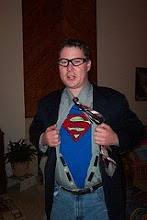Block says consultants "work at the pleasure of the client." It is the responsibility of a consultant to assure that the needs of the client are met. But how is this truly measured, needs being met? Last Monday we were given the opportunity to take on the role of a process consultant. I thought it was going to be easy. But the process itself was difficult to follow at first. My immediate response when a questions is asked is to immediately answer it. I think we all have that problem. This process has us listen, ask follow up question and than try to offer feedback.
I think most of my job requires me to be a consultant. My business card doesn't say as such, but when I reflect on the process of consulting, I feel that that best defines my roll. For example, I am considered an expert in Annual Fund operations at VCU. Whenever someone has a question pertaining to Annual Fund, they call me, and it is usual not as a hands on person, but for advice or best practices. I find it easier to make recommendations based on my expertise than to tell the person how to do something. This allows the "client" to get back to you to let you know how everything worked out.
This last week has been an incredible week. Thursday was out annual advancement retreat. I spent the better part of last week doing last minute items to ensure the event was a success. I volunteered to be on the committee and serve as a table facilitator. It was a great opportunity to use skills I have learned in the adult learning program.
But perhaps the greatest take a way from our retreat was the creation of an expertise guide. We collected information from each of our attendees asking them to respond in a number of areas of fund-raising their experience in years. Our plan is to develop a book of "who to call" if a question arises. I think we have set of a whole division of consultants. I will post again how the process turned out. Thanks for reading!
“What I’ve Learned about Organizational Change”
15 years ago

Yes! I felt the same way about the exercise in class. I enjoyed it but it was certainly an eye-opening process. I, too, wanted to interject multiple times and really had to force myself to let the "client" get the story out at her own pace. I also found myself really getting wrapped up in the story she was telling and wanted to make comparisons to my own life experiences at all the wrong times.
ReplyDeleteFrom the little you've described about your job above, it does sound like consulting is an important role in your position. Would it be possible to implement any of the active inquiry method in your telephone conversations? Or would this take too much time? I'm sure you're employing that method in some form as it is when you ask for clarification, etc., but it would be interesting to see how a conscious effort to follow the guidelines would pan out.
-Sarah
Hi, Ike,
ReplyDeleteYour "expertise" directory sounds like an excellent outcome of a worthwhile retreat. I do believe you are right -- consulting is part of your job description whether it says so in print or not. In fact, most of us who provide "help" to others, regardless of the industry, organization, or setting, are really acting in a consulting role. I'm delighted that you are finding what you are learning useful to you in your work.